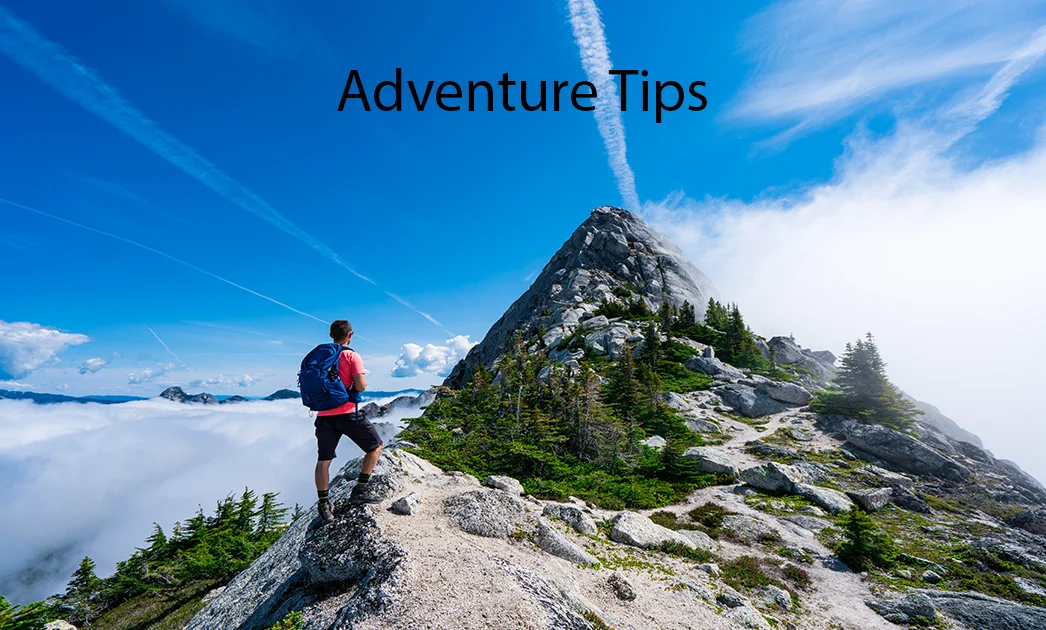Adventure trips often involve unique challenges and experiences. Here’s a list of tips to help you make the most of your adventure travel while staying safe:
- Research and Plan:
- Thoroughly research your destination and the specific activities you plan to undertake.
- Plan your itinerary, but also be flexible as conditions can change.
- Get the Right Gear:
- Invest in high-quality gear suitable for your adventure, whether it’s hiking, camping, or other activities.
- Ensure your equipment is in good condition before you depart.
- Fitness Preparation:
- Assess the physical demands of your adventure and train accordingly.
- Build stamina and strength to handle the challenges you may face.
- Learn Basic Skills:
- Acquire basic survival skills such as navigation, first aid, and fire-building.
- Familiarize yourself with the specific skills needed for your chosen adventure.
- Inform Others:
- Share your adventure plans with someone reliable and provide them with your itinerary.
- Check in regularly, especially if you are venturing into remote areas.
- Weather Awareness:
- Stay updated on weather conditions for your destination.
- Be prepared for unexpected weather changes, and pack accordingly.
- Leave No Trace:
- Follow the principles of “Leave No Trace” to minimize your impact on the environment.
- Dispose of waste responsibly and respect wildlife.
- Emergency Communication:
- Carry a satellite phone or emergency communication device in areas with limited or no cell coverage.
- Know the emergency procedures and contact information for the local authorities.
- Hydration and Nutrition:
- Stay well-hydrated, especially in challenging environments.
- Pack lightweight, high-energy snacks to sustain you during the adventure.
- Travel Insurance:
- Ensure your travel insurance covers the specific activities you’ll be engaging in.
- Carry a copy of your insurance details and emergency contacts.
- Local Guidance:
- Hire local guides who are familiar with the terrain and can enhance your experience.
- Respect local customs and seek advice from experienced locals.
- Check Equipment Before Departure:
- Thoroughly check all your equipment before leaving, including tents, ropes, and safety gear.
- Know how to use each piece of equipment properly.
- Stay Hygienic:
- Practice good hygiene, especially in remote areas where medical facilities may be limited.
- Carry essential toiletries and a basic hygiene kit.
- Wildlife Safety:
- Learn about the wildlife in the area and how to safely interact or avoid encounters.
- Keep a safe distance from potentially dangerous animals.
- Mind Your Limits:
- Know your physical and mental limits, and don’t push yourself beyond what you can handle.
- Be prepared to turn back if conditions become too challenging.
Remember that safety is paramount during adventure trips. By preparing thoroughly and staying aware of your surroundings, you can have a thrilling and safe adventure experience.



